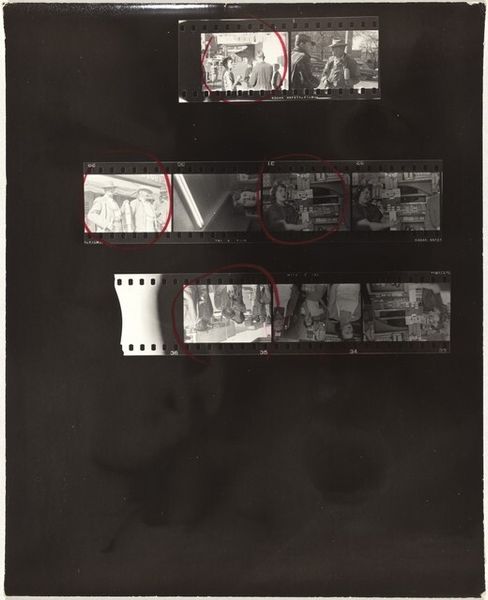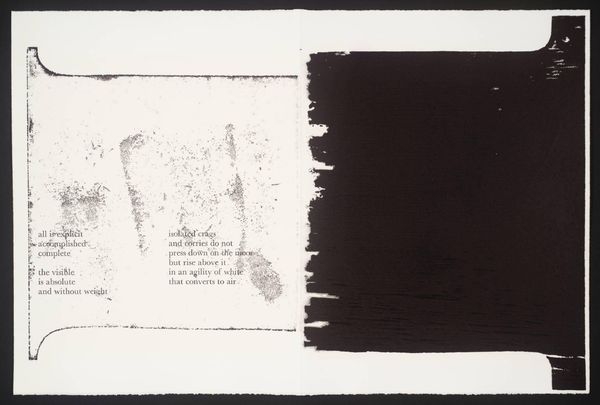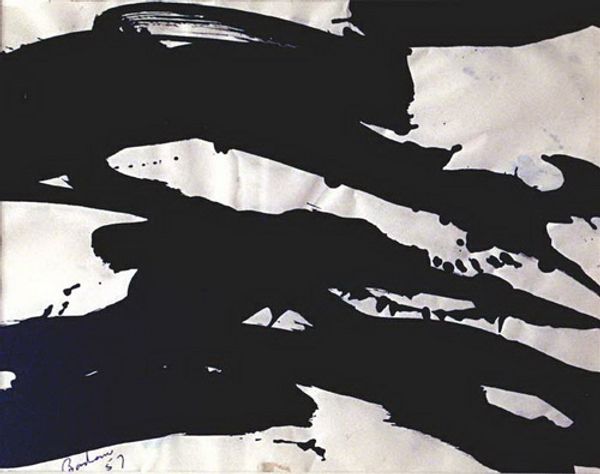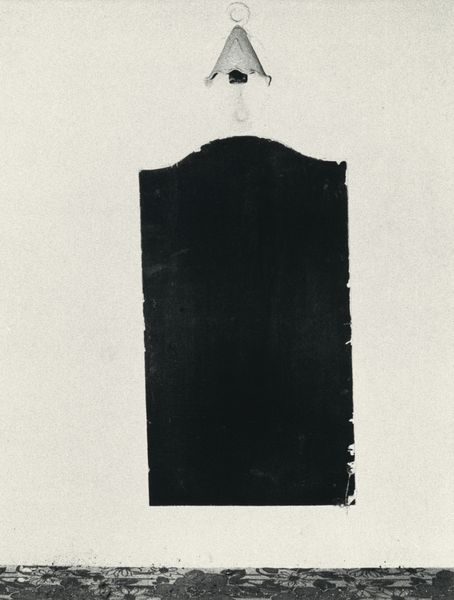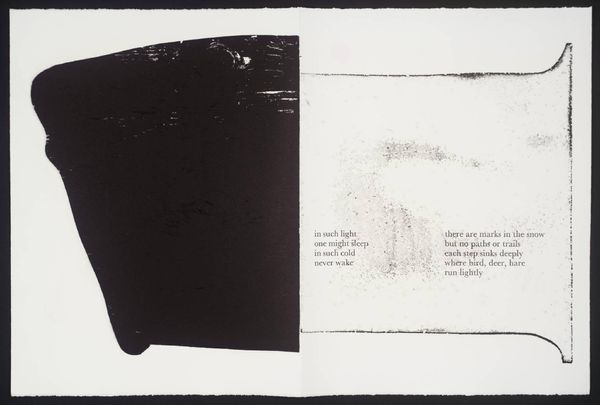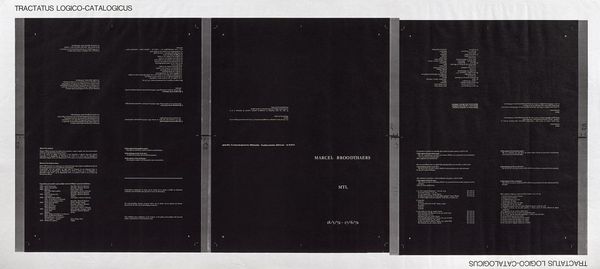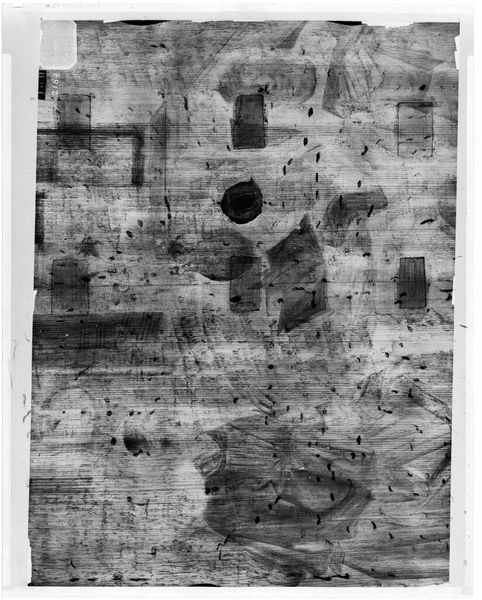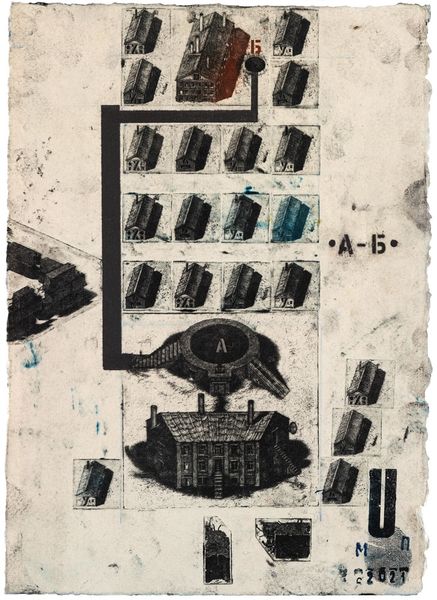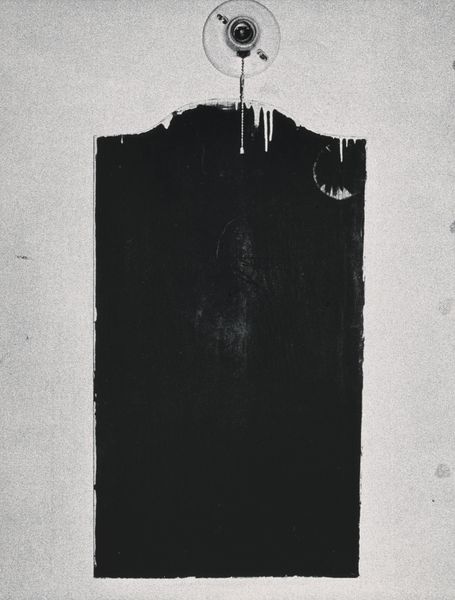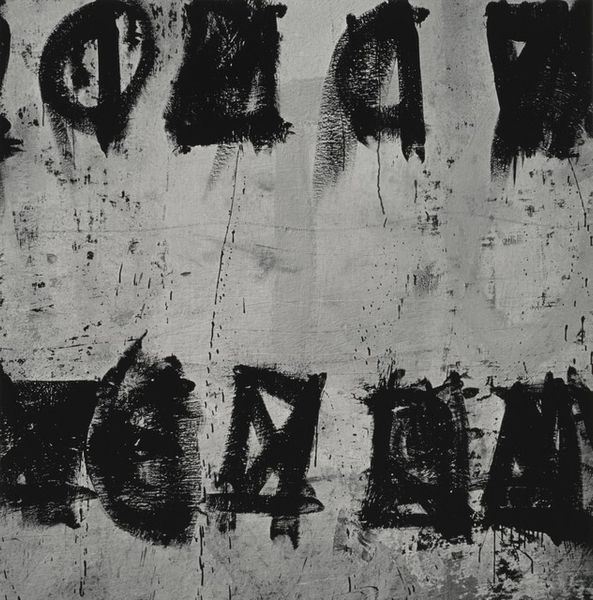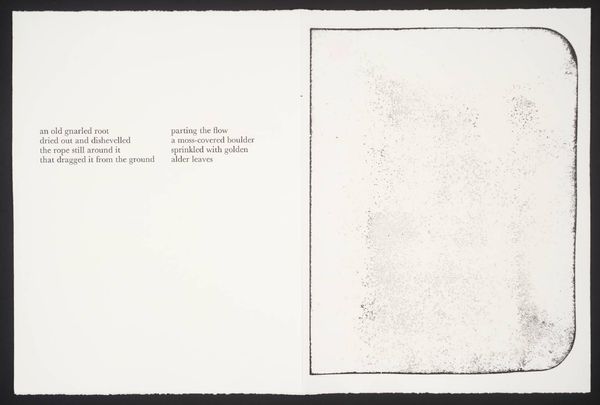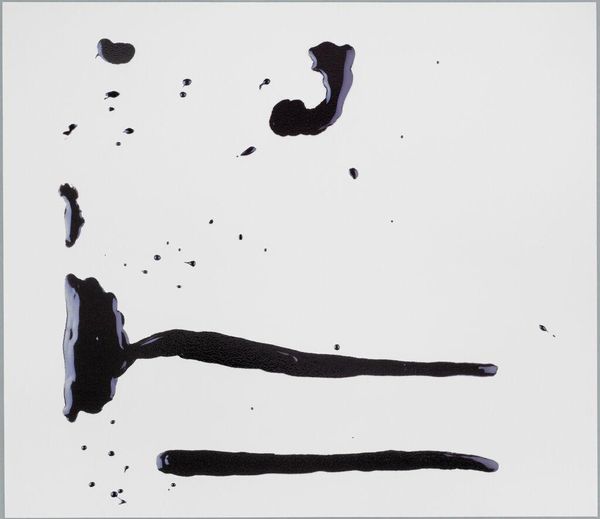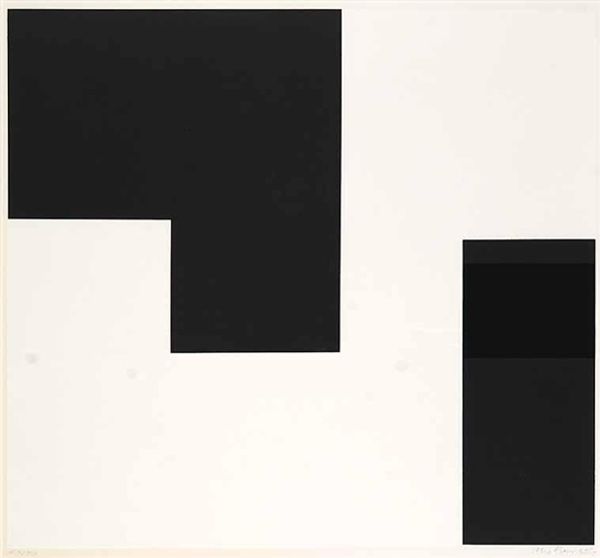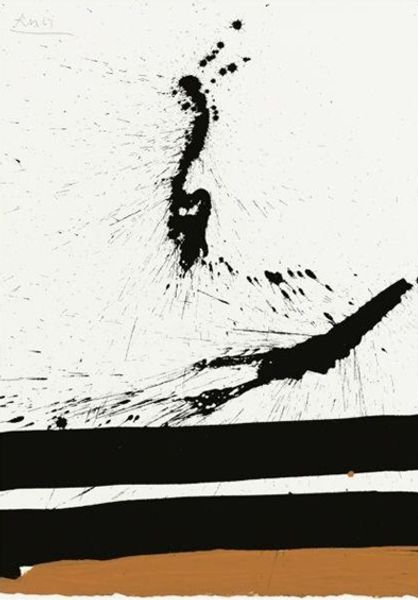
contact-print, photography
#
portrait
#
negative space
#
appropriation
#
digital print
#
contact-print
#
photography
#
geometric
Dimensions: overall: 147.32 x 111.76 cm (58 x 44 in.)
Copyright: National Gallery of Art: CC0 1.0
Curator: Standing before us is Jenny Holzer's "Left Hand DOD-044401," a photographic print from 2007. It's quite stark, isn’t it? Editor: Immediately I'm struck by the density of it, even though it's largely negative space. It feels like something lifted straight from a cold case file – unsettling and undeniably powerful. Curator: Precisely. Holzer's piece utilizes a contact-print of a hand from Department of Defense records, heavily redacted. Think of it as artistic appropriation, lifting an image directly from government archives, complete with obscured identifying information. Editor: So, Holzer's taking a pre-existing image loaded with bureaucratic and potentially violent implications, and stripping away what exactly? Context? Anonymity? Perhaps both. What kind of context is it? The solid blocks censoring parts of the image makes you think "military intelligence." Curator: The redactions absolutely heighten the sense of secrecy. It reminds us how much is actively concealed from public view. Holzer is no stranger to confronting power structures and making visible the invisible forces that shape our lives. Editor: And it becomes so abstract, ironically. The blacked-out text transforms into graphic elements, geometric shapes dancing around the ghostly hand. It shifts from evidence to artifact, loaded with implications about surveillance, identity, and state control. I’m finding a deep visual poetry in what at first appears so clinical and cold. What do you think, what statement do you suppose that she's trying to convey? Curator: Well, that it's like the artist uses a palm, that, according to ancient knowledge, holds so much insight about a person. To have it obscured, and taken by an organization such as the DOD suggests ownership over one's destiny... It asks us to consider who holds our stories, literally. Who owns our information, and to what end will that information be put? Editor: I suppose by placing it in a gallery space, she forces us to confront our own complicity in these systems, to acknowledge that we're all somehow implicated in this dance between power, privacy, and knowledge. A fascinating echo. Curator: An echo, indeed. It's haunting to contemplate whose life this print represents, their experience obscured. Editor: Very haunting.
Comments
No comments
Be the first to comment and join the conversation on the ultimate creative platform.
